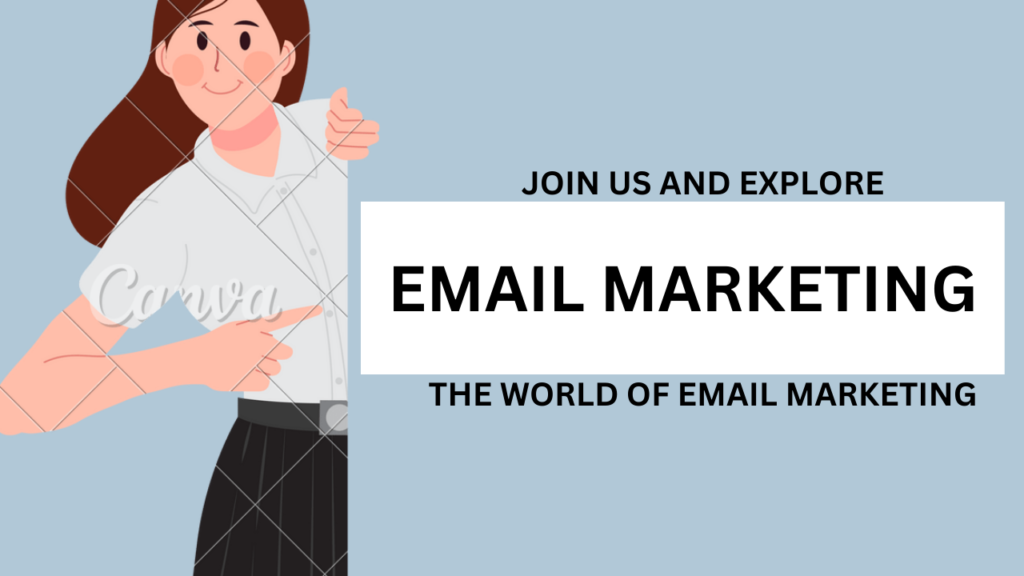Digital Marketing in Email Marketing: Strategies, Benefits, and Future Trends
In the ever-evolving world of digital marketing, email marketing remains one of the most powerful and effective tools for businesses to engage with their audience. By leveraging targeted messaging, automation, and data-driven insights, companies can enhance customer relationships and drive conversions. As digital strategies continue to evolve, understanding the role of email-marketing and optimizing its effectiveness is crucial for business success.
Email Marketing
Email marketing is a digital strategy that involves sending targeted emails to prospects and customers with the goal of building relationships, nurturing leads, and driving sales. Businesses use this marketing to communicate promotions, product updates, newsletters, and personalized messages that resonate with their audience.
Benefits of Email Marketing in Digital Marketing
1. Cost-Effective Marketing Strategy
A key benefit of this marketing is its affordability, making it an efficient strategy for businesses of all sizes. Compared to traditional marketing methods, sending emails requires minimal investment while delivering high returns. Businesses can reach thousands of customers without the need for expensive advertising.
2. Personalized Communication
Personalization is key in digital marketing, and email-marketing allows businesses to tailor content to individual recipients. By using customer data, brands can send personalized recommendations, birthday offers, and exclusive deals that increase engagement and customer loyalty.
3. High ROI and Conversion Rates
Studies show that email-marketing consistently delivers one of the highest return on investment (ROI) rates in digital marketing. Well-crafted emails with compelling calls-to-action (CTAs) lead to higher conversion rates and increased revenue.
4. Automation and Efficiency
With automation tools, businesses can streamline their marketing campaigns by scheduling emails, setting up autoresponders, and creating drip campaigns. This enhances productivity and ensures prompt communication with customers.
5. Measurable Results and Analytics
A key advantage of this is the ability to track and measure performance. Businesses can analyze open rates, click-through rates, and conversions, allowing them to refine their strategies for better results.
Best Strategies for Email Marketing Success
1. Build a Quality Email List
The foundation of a strong email-marketing campaign is a well-curated email list. Businesses should focus on growing their subscriber base organically through website sign-ups, social media promotions, and lead magnets such as eBooks or exclusive content.
2. Segment Your Audience
Segmenting email lists based on demographics, purchase history, and user behavior enhances the effectiveness of email campaigns. Targeted emails ensure that recipients receive relevant content, increasing engagement and conversion rates.
3. Craft Compelling Subject Lines
The subject line is the first thing recipients see in an email-marketing campaign. A well-crafted, attention-grabbing subject line encourages higher open rates and improves the chances of engagement.
4. Optimize for Mobile Users
With the majority of emails being opened on mobile devices, it’s essential to ensure that email marketing campaigns are mobile-friendly. Responsive design, concise content, and clear CTAs enhance the user experience on mobile screens.
5. A/B Testing for Optimization
A/B testing allows businesses to experiment with different email elements, such as subject lines, images, and CTA buttons, to determine what works best. Regular testing helps improve the performance of email marketing campaigns.
The Future of Email Marketing in Digital Marketing
As technology advances, email marketing is expected to evolve with new innovations and trends. Some of the key developments shaping the future of email marketing include:
- AI-Powered Personalization – Artificial intelligence is enhancing email marketing by providing data-driven insights for more personalized and relevant content.
- Interactive Emails – Businesses are incorporating interactive elements like surveys, GIFs, and dynamic content to increase user engagement.
- Privacy and Data Security – With stricter data protection regulations, brands must ensure compliance with privacy laws to maintain customer trust in email marketing campaigns.
- Integration with Other Digital Channels – Seamless integration of email marketing with social media, chatbots, and automation tools will create a more cohesive digital marketing strategy.
Conclusion
Email marketing remains a fundamental component of digital marketing, offering businesses a direct and effective way to engage with their audience. By implementing personalized communication, automation, and data-driven strategies, companies can maximize the impact of their email marketing efforts. As new trends and technologies emerge, staying ahead of innovations will ensure continued success in email marketing campaigns.
